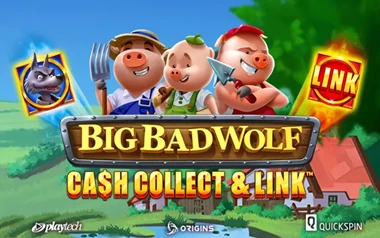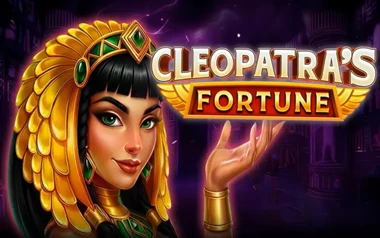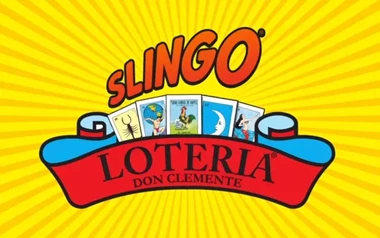Social media and online gambling may seem like entirely separate worlds—one dominated by memes and viral dances, the other by odds and wagers. But in today’s hyper-connected digital landscape, the lines are blurring fast. Social platforms are not only influencing how people find and talk about gambling—they’re actively reshaping the way they bet.
Whether it’s TikTok punters sharing accumulator tips, Instagram influencers flaunting wins, or YouTube streamers live-reacting to slots, the presence of gambling on social media has become impossible to ignore. It’s no longer confined to static banner ads or obscure affiliate links; gambling content now comes dressed in entertainment, humour, and personality.
This cultural convergence is redefining what it means to gamble online. Players are no longer isolated behind their screens. They’re part of something larger—a community, a movement, a spectacle. And the ripple effects are being felt across every corner of the industry, from advertising strategies to platform design.
In this article, we explore how social media is changing the way people gamble online. We’ll examine the trends, the tools, and the psychological levers at play—while also considering how online gambling sites are responding to this fast-moving shift in player behaviour.
Here are the best gambling sites in the UK.
Community, Not Casino: The Rise of Social Gambling
Traditionally, gambling has been seen as a solitary pursuit—placing a bet, spinning the reels, checking your ticket. But social media has changed that dynamic entirely. Platforms like Reddit, Discord, and Facebook Groups have cultivated tight-knit gambling communities where users share tips, celebrate wins, and dissect losses together.
This communal element has created a new gambling culture—one less about isolation and more about interaction. Betting isn’t just an activity now; it’s a conversation. Punters share screenshots of big wins, debate strategies, and discuss game providers like film critics reviewing new releases. This sense of belonging reinforces engagement and makes gambling feel more like a lifestyle than a fleeting pastime.
For online gambling sites, this presents a massive opportunity. Brands that tap into this community spirit—offering forums, social features, or event-driven promotions—stand to gain loyalty not just from individuals, but from networks of players who influence one another.
The Influencer Effect: Gambling’s New Tastemakers
Love them or loathe them, influencers are now a central force in online gambling. From Instagram reels to Twitch streams, social media personalities are actively shaping betting trends by broadcasting their experiences in real-time. Their followers, in turn, don’t just watch—they imitate.
An influencer might show off a new slot title, share a parlay bet, or livestream a poker tournament. The content is designed to entertain, but it also educates—often nudging viewers toward the same platforms or strategies. Many such figures have affiliate deals with online gambling sites, monetising their influence while amplifying the visibility of certain operators.
Of course, this raises ethical concerns. Not all influencers disclose their partnerships transparently, and not all followers are adults. The UK Gambling Commission has introduced stricter guidelines around gambling-related influencer marketing, urging more accountability and age-appropriate content.
Still, when done responsibly, influencer-led gambling content can serve as an engaging introduction to games or platforms, helping to demystify online play for newer audiences.

Livestreaming the Luck Entertainment Meets Edge
Livestreaming the Luck: Entertainment Meets Edge
Livestreaming has emerged as one of the most potent formats in the new era of social gambling. Whether it’s a Twitch streamer betting live on roulette or a YouTube host narrating slot spins, real-time content injects a sense of urgency and drama that static betting lacks.
These streams often include audience interaction—chat boxes where viewers can suggest bets, vote on decisions, or cheer during big wins. The result is a kind of digital colosseum, where gambling becomes a spectator sport. Players aren’t just wagering; they’re performing. Viewers, meanwhile, live vicariously through the streamer’s risk and reward.
Some online gambling sites have taken this format a step further by embedding live social features directly into their platforms. Interactive leaderboards, chat-integrated games, and even streamable casino sessions make for a more dynamic experience that reflects the energy of social media itself.
This fusion of gameplay and showmanship brings gambling closer to entertainment than ever before—blurring the line between casino and content.
Algorithmic Temptation: The Psychology of Visibility
One of the less visible—but arguably most powerful—ways social media shapes gambling is through its algorithms. Platforms like TikTok and Instagram use engagement-based algorithms that serve users content based on their interactions. If a user likes or watches a gambling-related post, they’re likely to be shown many more.
This can create an echo chamber effect. Someone casually watching a poker hand today might be flooded with high-stakes gambling content tomorrow. The dopamine-fuelled excitement of big wins and dramatic reactions can make gambling look more appealing than it is, especially to younger audiences or those unfamiliar with the risks involved.
The best online gambling sites understand this dynamic and are taking steps to balance promotion with protection. Age-gated content, responsible gambling messages, and partnerships with social platforms to ensure advertising compliance are all part of the modern marketing playbook.
Yet, for individual users, it’s vital to remain conscious of the ways algorithms may be subtly steering interest—and to separate entertainment from encouragement.
Algorithmic Temptation: The Psychology of Visibility
One of the less visible—but arguably most powerful—ways social media shapes gambling is through its algorithms. Platforms like TikTok and Instagram use engagement-based algorithms that serve users content based on their interactions. If a user likes or watches a gambling-related post, they’re likely to be shown many more.
This can create an echo chamber effect. Someone casually watching a poker hand today might be flooded with high-stakes gambling content tomorrow. The dopamine-fuelled excitement of big wins and dramatic reactions can make gambling look more appealing than it is, especially to younger audiences or those unfamiliar with the risks involved.
The best online gambling sites understand this dynamic and are taking steps to balance promotion with protection. Age-gated content, responsible gambling messages, and partnerships with social platforms to ensure advertising compliance are all part of the modern marketing playbook.
Yet, for individual users, it’s vital to remain conscious of the ways algorithms may be subtly steering interest—and to separate entertainment from encouragement.

Viral Bets and Shared Trends
Viral Bets and Shared Trends
Social media has made betting trends go viral. From crowd-sourced accumulators to joke bets on reality TV outcomes, users now rally behind shared wagers with meme-like momentum. Whether it’s a group of Reddit users backing an underdog or a Twitter poll deciding the “People’s Bet,” the gamification of gambling has taken on new social dimensions.
These viral trends tap into a powerful cocktail of FOMO (fear of missing out), peer validation, and shared excitement. Even users who wouldn’t normally bet might place a wager just to be part of the moment. It’s less about the potential payout and more about the cultural participation.
Some online gambling sites have embraced this by creating “community bets,” where players can pool stakes on a chosen outcome. Others have introduced social features like sharing bet slips on platforms or offering rewards for group challenges.
These mechanics not only drive traffic but foster long-term engagement, turning gambling from an individual decision into a collective experience.
Regulation, Responsibility, and the Road Ahead
As social media and gambling continue to intertwine, regulators around the world are paying closer attention. In the UK, both the Advertising Standards Authority (ASA) and the Gambling Commission have issued specific rules governing how gambling can be promoted online, particularly around influencers, age restrictions, and transparency.
Reputable online gambling sites are aligning their strategies with these standards, using AI-driven age verification, limiting ad exposure, and embedding responsible gambling tools into social campaigns. At the same time, there’s an increasing emphasis on media literacy—helping users, especially younger ones, recognise persuasive content and understand gambling risks.
The road ahead will likely see more integration, but also more oversight. Operators that embrace transparency, ethics, and player protection will not only comply with regulation—they’ll build trust in a market where reputation is everything.
Chips, Clicks, and Culture: A Social Conclusion
Social media has transformed the landscape of online gambling—not with a bang, but with a billion quiet clicks. It’s changed how players discover platforms, how they engage with games, and how they share their experiences. From private chats to public streams, gambling is no longer a solo sport—it’s a social currency.
This fusion of culture, technology, and entertainment has brought new energy to the industry, but it also comes with challenges. The immediacy of social media, its addictive loops, and its power to amplify trends mean that responsibility must rise to meet innovation.
For players, being aware of how social platforms influence gambling behaviour is half the battle. For operators, adapting to this new reality—while maintaining integrity—is key to long-term success.
And for anyone curious about the evolving relationship between technology and gaming, the most insightful updates and ethical guidance can always be found at Gambling Zone. It's where trends meet transparency, and where today’s online gambling sites find tomorrow’s players.








